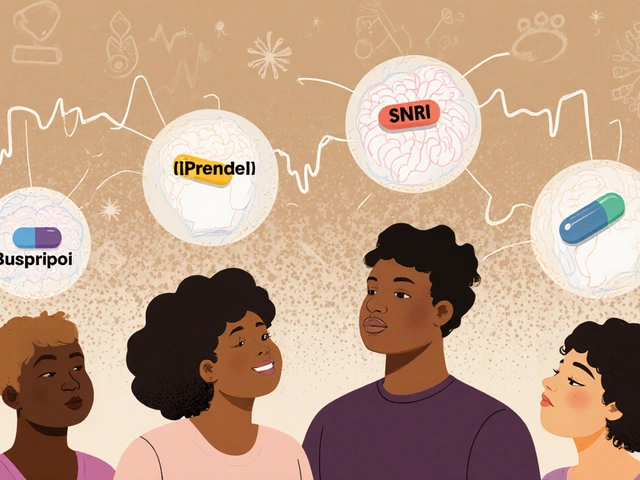Abilify (Aripiprazole): What it does and what to watch for
Abilify, the brand name for aripiprazole, is an antipsychotic many people use for schizophrenia, bipolar disorder, and as an add-on for depression. It also helps with irritability in autism and certain behavioral problems. If you or someone you care for is starting Abilify, this short guide gives practical facts so you know what to expect and when to call your doctor.
How Abilify works and what it's used for
Abilify acts on brain chemicals like dopamine and serotonin but in a gentler way than older antipsychotics. Instead of blocking these receptors completely, it partly activates or stabilizes them, which can reduce hallucinations, mood swings, and severe anxiety symptoms tied to psychosis. Doctors commonly prescribe it for schizophrenia, manic or mixed episodes in bipolar disorder, and as an add-on treatment when standard antidepressants alone aren’t enough.
The drug comes in pills, an oral solution, and a long-acting injectable (often called Abilify Maintena). The injection is given monthly and helps people who have trouble taking daily pills.
Practical tips, side effects, and safety
Typical oral doses range from 2 mg up to 30 mg a day depending on the condition and how you respond. Don’t change your dose without speaking to your prescriber. If you miss a dose, follow their instructions — don’t double up unless told to.
Common side effects include restlessness (akathisia), drowsiness, nausea, constipation, and weight changes. Some people notice new or worsening anxiety or trouble sleeping. Rare but serious effects include movement disorders, high blood sugar, and increased cholesterol or weight. Older adults with dementia-related psychosis have a higher chance of serious problems while taking antipsychotics.
Watch your weight, blood sugar, and mood—ask your doctor for baseline tests and follow-ups. If you experience sudden muscle stiffness, a high fever, confusion, or very slow heart rate, seek care right away. These can be signs of rare but serious reactions.
Abilify interacts with some drugs. Medicines that affect CYP3A4 or CYP2D6 enzymes (for example, ketoconazole, certain antidepressants, or carbamazepine) can change how much aripiprazole is in your blood. Tell your doctor about all prescriptions, over-the-counter meds, and supplements you take.
Don’t stop Abilify suddenly. Stopping can worsen symptoms or cause withdrawal-like effects. If you want to stop or switch, work with your prescriber to taper safely.
Thinking about getting Abilify online? A legitimate pharmacy will always ask for a prescription. Be cautious with sites that skip this step. If you have questions about cost or access, ask your clinic about assistance programs or generic aripiprazole options.
Have any new symptoms, or feel the medication isn’t helping? Speak up. Small adjustments—dose changes, switching to the long-acting shot, or monitoring labs—often make a big difference. Your doctor should help you weigh benefits against side effects and find the safest, most effective plan for you.

Finding alternatives to Seroquel can be essential for those experiencing side effects or seeking different treatment avenues. This article explores eight alternatives, delving into their pros and cons to help readers make informed decisions. Learn about options like Abilify and Risperdal, each offering unique benefits depending on individual health needs. Discover how these medications compare in terms of effectiveness and potential drawbacks. This guide aims to equip you with the insights you need for your mental health journey.
Continue Reading





